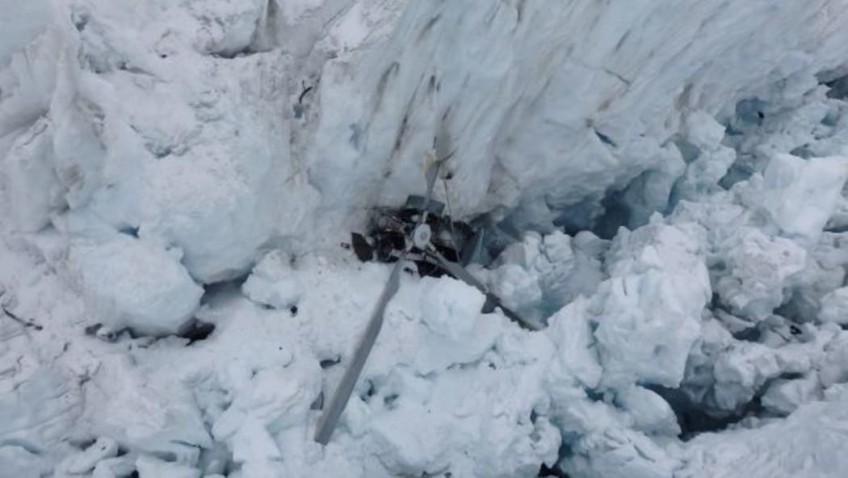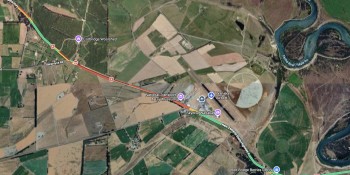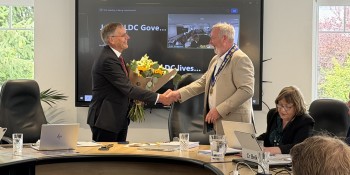Stronger aviation rules call after 7 deaths in Fox Glacier crash

Almost seven years after the death of seven people in a West Coast helicopter crash, a coroner has called for stronger aviation rules to prevent a similar disaster happening again.
Coroner Marcus Elliott has released his findings into the deaths of six tourists and pilot Mitchell Gameren on Fox Glacier on 21 November 2015.
The sightseeing flight became one of New Zealand's deadliest air disasters when the Airbus Helicopter crashed just below the Chancellor Shelf.
British tourists Helen and Nigel Charlton, Andrew Virco and Katherine Walker, and Australians Josephine Gibson and Sevonne Leang died alongside Gameren when the helicopter collided with the glacier at speed.
The Transport Accident Investigation Commission found the Alpine Adventures helicopter was overweight and likely should not have been flying when it crashed in changeable weather.
Alpine Adventures owner James Scott was charged along with Aviation Manual Development (2009) Ltd - whose director Barry Waterland was contracted to provide quality assurance to Alpine Adventures - with breaches of the Health and Safety in Employment Act.
Scott was fined $64,000 and made voluntary reparations of $125,000 to each of the victim's families before sentencing.
In his findings, the coroner called for stricter regulations for weighing passengers and crew, and changes to pilot training and auditing of operators.
He recommended the Civil Aviation Rules be amended so the only way to ascertain the weight of passengers and crew was to use their actual weights.
At present operators could use a standard weight.
Alpine Adventures use of 77kg per passenger contributed to miscalculating the weight of the helicopter.
The Transport Accident Investigation Commission estimated the helicopter weighed 2165kg at takeoff and 2147kg when departing the glacier - both over the maximum permissible weight of 2100kg.
The coroner also called for pilot training to be strengthened and for amendment to the rules on operator auditing.
"I recommend that the Ministry of Transport provides advice to the Minister of Transport about possible amendment to the Rules to include the following requirements for ... operators:
(a) Operators should regularly engage an independent auditor to assess their compliance with regulatory and health and safety obligations.
(b) Operators should be required to provide the auditor's reports to CAA," the findings said.
"If these amendments are adopted, I recommend that CAA (Civil Aviation Authority) uses these auditors' reports as a means to determine whether further investigation of an operator is warranted."
The CAA's oversight of Alpine Adventures was not up to standard in the lead-up to the crash, an issue the watchdog had acknowledged.
It had said changes had now taken place, though the coroner raised questions.
"In asserting that it has fully complied with the TAIC review of 2019, CAA now refers to the same types of matters it cited to TAIC in 2014, in particular, organisational change, a change to the approach to surveillance and the training of regulatory staff," the coroner said.
"It may be that this work has resulted in improvements. However, the independent expert Mr [John] Fogden was unable to determine from the evidence 'what materially is changing on the ground in terms of performance or the difference being made to operators'. I am therefore not in a position to independently determine whether the changes [CAA Deputy Chief Executive for Aviation Safety] Mr [David] Harrison described have improved CAA's regulatory performance."
In a statement, the authority said it acknowledged the coroner's findings and takes the recommendations seriously.
"We are working with the Ministry of Transport to study and assess the recommendations," the statement said.
"There has been significant change at the CAA in the last six years post-dating the accident covered in this coroner's report. The implementation of safety management systems for all commercial aviation operators nears completion, the helicopter certification team has been expanded (compared to resourcing levels in 2015), and the organisational restructure undertaken in 2020 brings a functional focus to the authority's activity. These changes, and others still in progress, all contribute to our intelligence-led and risk-based approach to aviation safety at the CAA."
The Ministry of Transport said it was working through the coroner's recommendations and considering what advice it would offer regarding potential rule changes.
"It's important that these matters are carefully considered, and this may take some time," the ministry said in a statement.
"We will seek further input and advice from Civil Aviation Authority and other aviation stakeholders. Te Manatū Waka has confidence in CAA's role as the regulator of the aviation system."
Associate Transport Minister Kieran McAnulty also offered a statement saying he was taking the coroner's recommendations seriously.
"Aviation safety is of the utmost importance and so it's crucial the process of exploring the recommendations is completed fully," it said.
"I understand officials at Te Manatū Waka will work through the coroner's recommendations, engage with stakeholders, and provide advice on what changes may need to be implemented.
"The process will take some time to work through before any potential changes are made."
The CAA, the ministry and the minister all declined RNZ requests for interviews. RNZ also approached James Scott for comment but he had not responded by deadline last night.





















